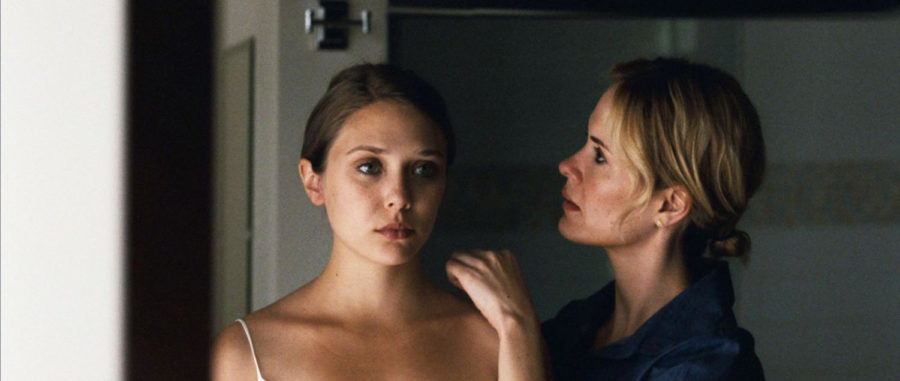Martha Marcy May Marlene begins with a quiet, backcountry scene, suggesting we are in for a stereotypically simple story, perhaps focusing on the majestic serenity of nature. From this homely perspective we meet Watts (Brady Corbet), one of several characters whose persona is not adequately developed. He initially seems to be Martha (Elizabeth Olsen)’s love interest. Or brother. And thus, the incestuous, cult-y vibe is in no way subtly introduced. The film still manages to pack a punch, largely thanks to Olsen’s thrilling performance, which gains momentum the moment she packs her life away in a backpack and runs away back to civilization and to her only remaining family, her sister Lucy (Sarah Paulson).
After this introduction, we follow Martha’s journey as she escapes from a dangerous cult. Even once she has physically escaped the danger, her mind still has not. It’s through flashbacks of her days as a cult member that we witness John Hawkes’s brilliant performance as Patrick, the leader of the cult. Hawkes’s raw manipulative power as Patrick spills off the screen, and makes Martha’s descent into cult life seemed entirely plausible. Throughout the entirety of the film, his magnetic gaze does not once cease to command and control the scene. Each word he speaks conveys a sense of absolute truth and authority. Had I been Martha, I would never have doubted a word. I would have drunk the Kool-Aid.
In a film that retrospectively prides itself on being fresh and cutting, Olsen’s portrayal of Martha was surprisingly soft and intimate. In one scene that is particularly difficult to watch, Martha attempts to hide her painful past from her sister, even as Lucy pleads with her, saying she would understand. Martha’s pleas for silence grow more and more urgent, until the audience is left with a feeling of complete desperation and loneliness. Lucy reacts with anger and, while audience can do nothing but empathize with Martha, for the rest of the film, Lucy and her husband Ted (Hugh Dancy) never wholeheartedly do, rendering them completely unrelatable.
The fact that Lucy and Ted were obviously serving as a two-dimensional foil to Olsen’s struggle made them unconvincing as actors. This problem prevented the film from venturing into even more questionable terrain than it did. The film works so hard to question the morality of this cult lifestyle—yet it would only have made the film stronger if it had touched upon the subject of social responsibility as well as the limits of sympathy and compassion.
However, even with these complaints, Olsen and Hawkes create such a compelling tale that it makes this movie worth seeing just to witness their acting. Together, Hawkes and Olsen drive a horrifying story towards a horrifying place—understanding.









